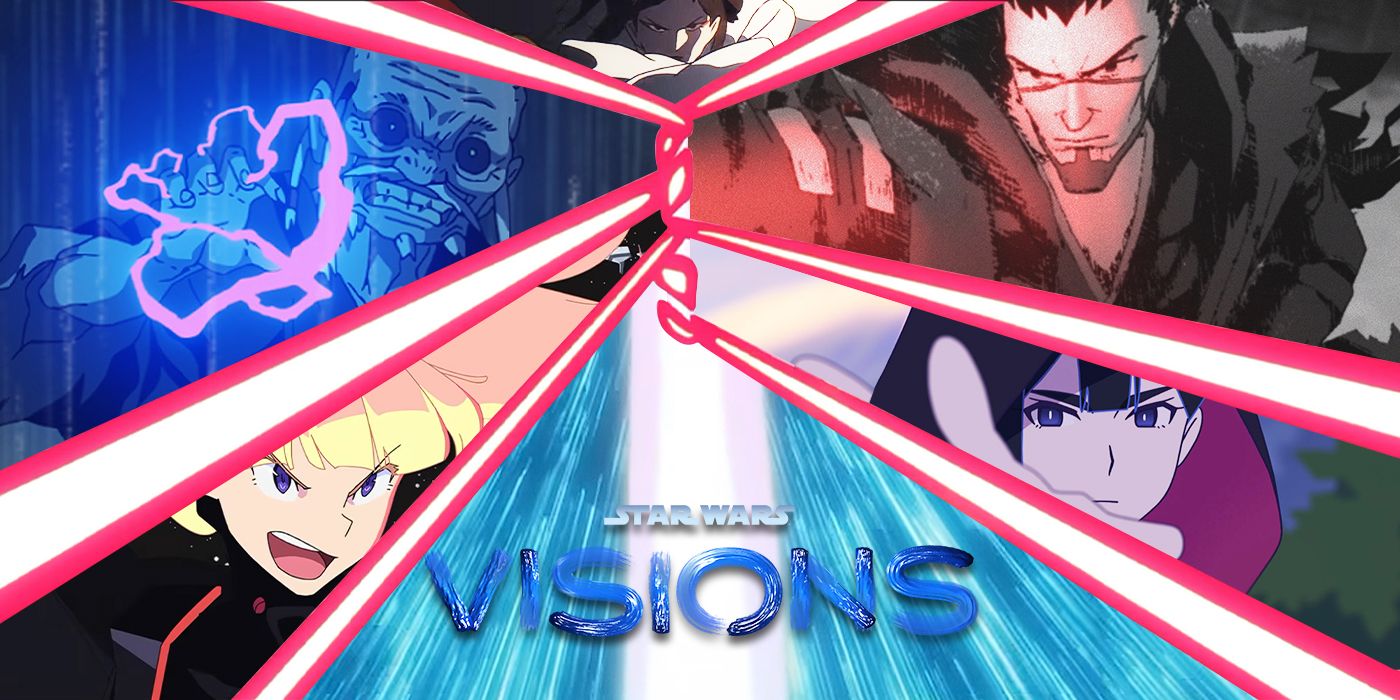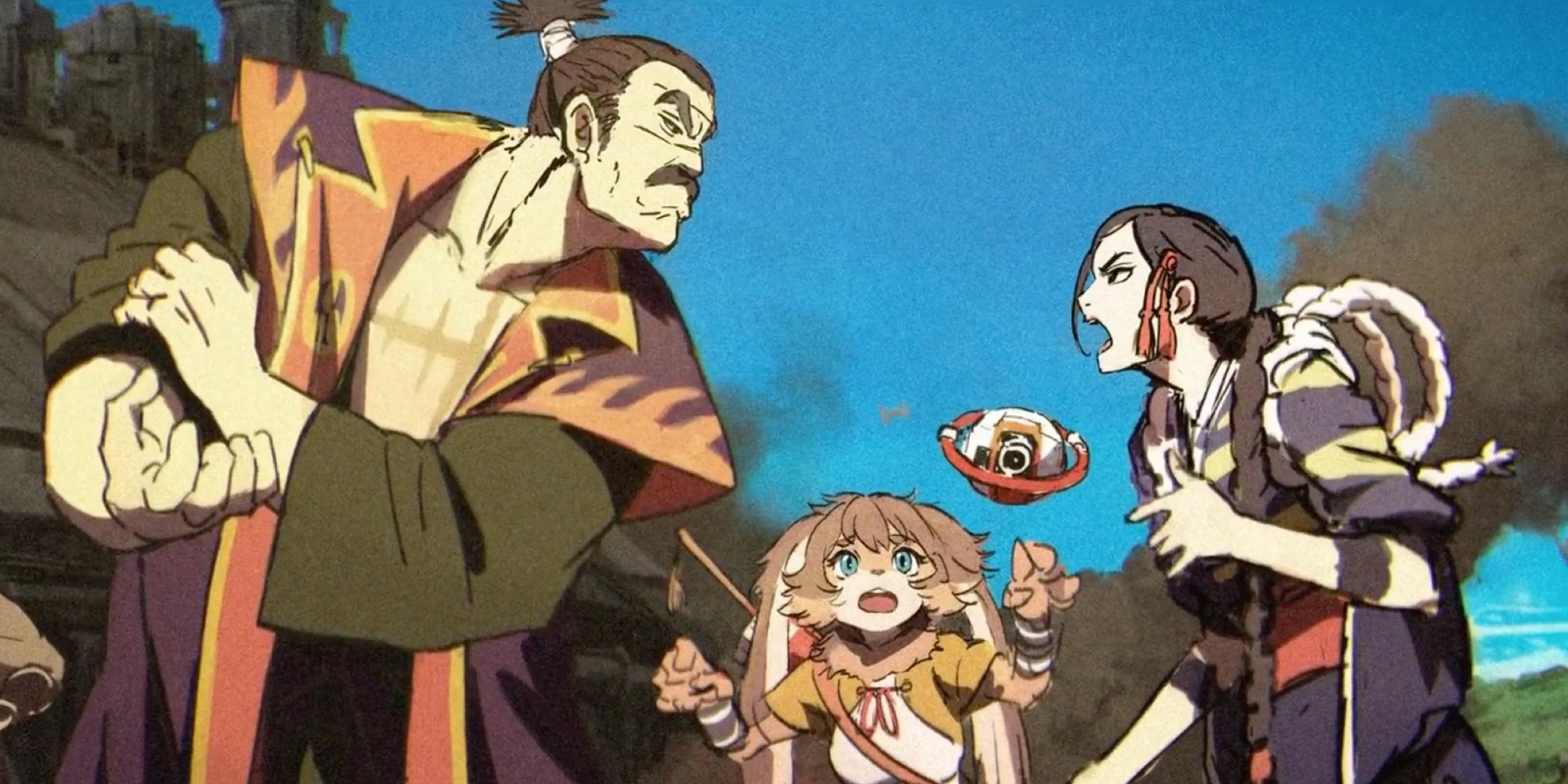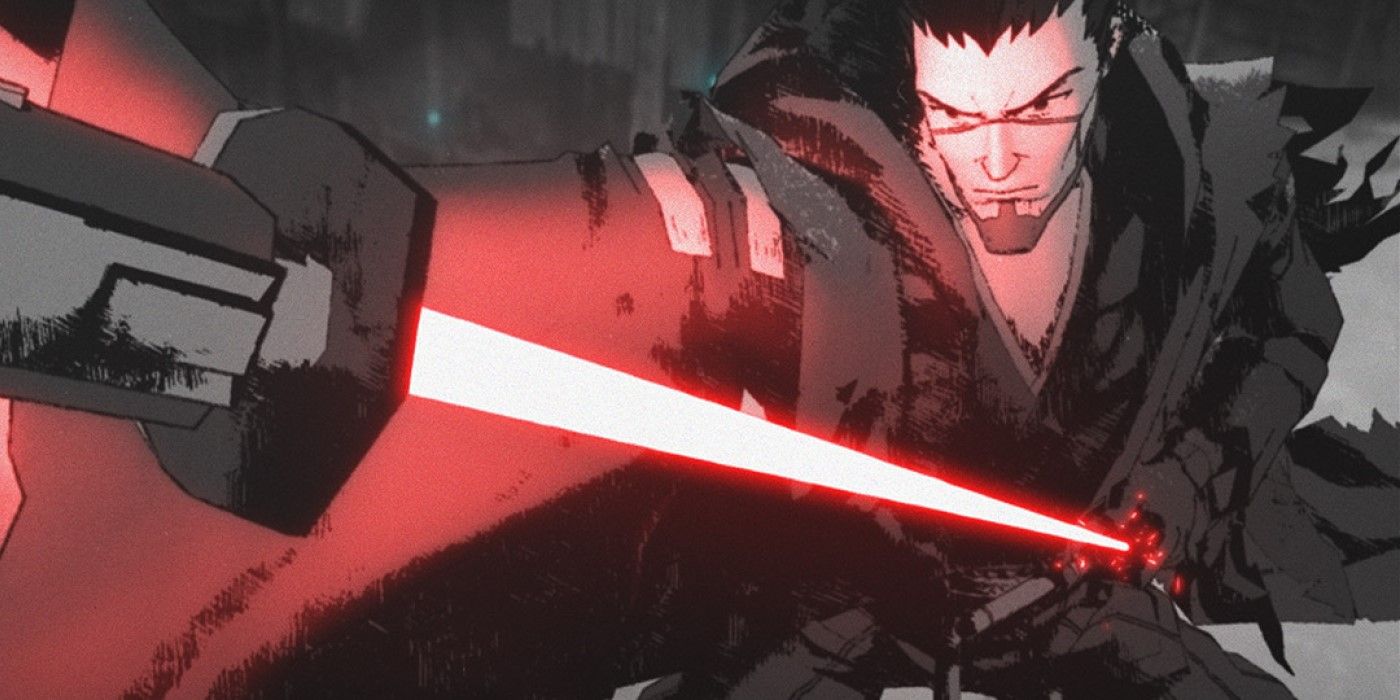Star Wars: Visions is one of the most exciting things to happen to the galaxy far, far away in years. A true opportunity to let a diverse group of artists play with the imagery of Star Wars and tell stories we've never imagined could be made within the franchise. From kaleidoscopic tales of evil twins to a rock opera and a samurai tale, there is something for everyone in this show.
I had the chance to talk to executive producers James Waugh and Kanako Shirasaki about working with the seven anime studios that made the anthology series, whether Disney said no to any stories, the characters that were allowed to appear in the show, and whether we'll see any of them return in future adventures.
Where did the individual episode ideas originate? Did the studios pitch to Lucasfilm or the other way around?
KANAKO SHIRASAKI: Lucasfilm pitched the idea to make the series. But the story, the ideas are coming from the studios and directors, scriptwriters. So, that is from their side. And we were lucky that all the ideas from the seven studios, all nine shorts are different and very distinct. And we were lucky that they just presented unique stories to us.
How did you find which studios to approach for this project?
JAMES WAUGH: These were studios that we loved. I think in general, people doing amazing things with cinema and film are people we watch and are inspired by. And anime, in particular, has inspired so much of our work over the years, that we knew these studios. It wasn't like, "Let's go. Who should we get?" It was, "Wouldn't it be cool to work with them?"
And then we were working with Kanako and Justin Leach of Qubic Pictures. We had a relationship. And they had been working with many of these studios as well. So they helped broker the conversations initially with them. But these are all studios we took a great interest in and whose work was very diverse, very different. And that was really important to us too, because we wanted to make sure that this anthology expressed all the different styles of anime that's out there, and that the studio list gave us a broad range of that. But yeah, I mean, we could geek out on these studios for this entire interview, actually. We were and are big fans.
Were there any stories that were off-limits?
WAUGH: Nothing was off the table. I think that's kind of the magic of Visions, that we've found a framework that allowed for a celebratory look at Star Wars that was going to be their story. We didn't want storytelling that was trying to fill in gaps in history, or really tell a deep story about a known character that George created, or J.J. created, or Jon Favreau, or whoever. What we wanted to do is really hear these creators' perspectives. And so, there really wasn't...
What we looked for were stories with heart, like we always do with Star Wars. I mean, that's just our development process. They came with the concepts and they had a real point of view. And then we, at Lucasfilm, are story editors from a Star Wars perspective and help them realize their vision, and do so in a way that feels like it rings true to a Star Wars storytelling value. So, strip the Star Wars out of it. What is the human story you're trying to convey? Great. Now, we can help you find the Star Wars in it.
So, that was really the guidelines. There were certainly bumps on the road. And not even bumps, but just moments of like, "Wow, is this crazy? Do we do this story, we've never done anything like this." And then, it was... That's what Visions is about.
SHIRASAKI: Because the idea's coming from different cultures, so sometimes you need to decode what's the meaning behind or what the story they're trying to achieve. But once we have a discussion between creators and we get to understand that, oh, okay, so we understand at the core, you want to tell the family story. So then, okay, that's fine. So it's just too bad, we only meet on Zoom. So if it's a meet in-person, that might be easier to carry that conversation. But it's on Zoom and different languages. But at the end, we really get to know each creator and understand the visions that they want to express in this anthology.
How do you find that balance between the stories feeling like Star Wars, but also unique to anime?
SHIRASAKI: Well, I would say we didn't really worry about that because each creator is a huge Star Wars fan. They understand what the universe or galaxy is. So, coming from them, it's already like very Star Wars story. So, yeah, it's great from the beginning.
WAUGH: They got it from the start. And then I think we were here to help guide them on telling the most authentic Star Wars story or give them the sage wisdom that we've been fortunate enough to get, over the years of working on the brand.
Have there been any discussions of expanding these stories?
WAUGH: The character of Ronin is actually really being richly explored in a novel right now, so continuing the storytelling of The Duel in a Del Rey novel by a really, really interesting, first time Star Wars author, Emma Mieko. And she's doing just an incredible story, that kind of that's a character that you know has had a million other adventures, and there's a lot more storytelling going on there. And that's one of the things that was fun about a lot of these stories. But that one, in particular, we felt was rife for a novel.
And then like everything Star Wars, I think we look at things from a franchise perspective of are there other opportunities to continue the storytelling of these characters to the scenario. And I think a lot of these short films are rich with those potentials in other media, for sure.



